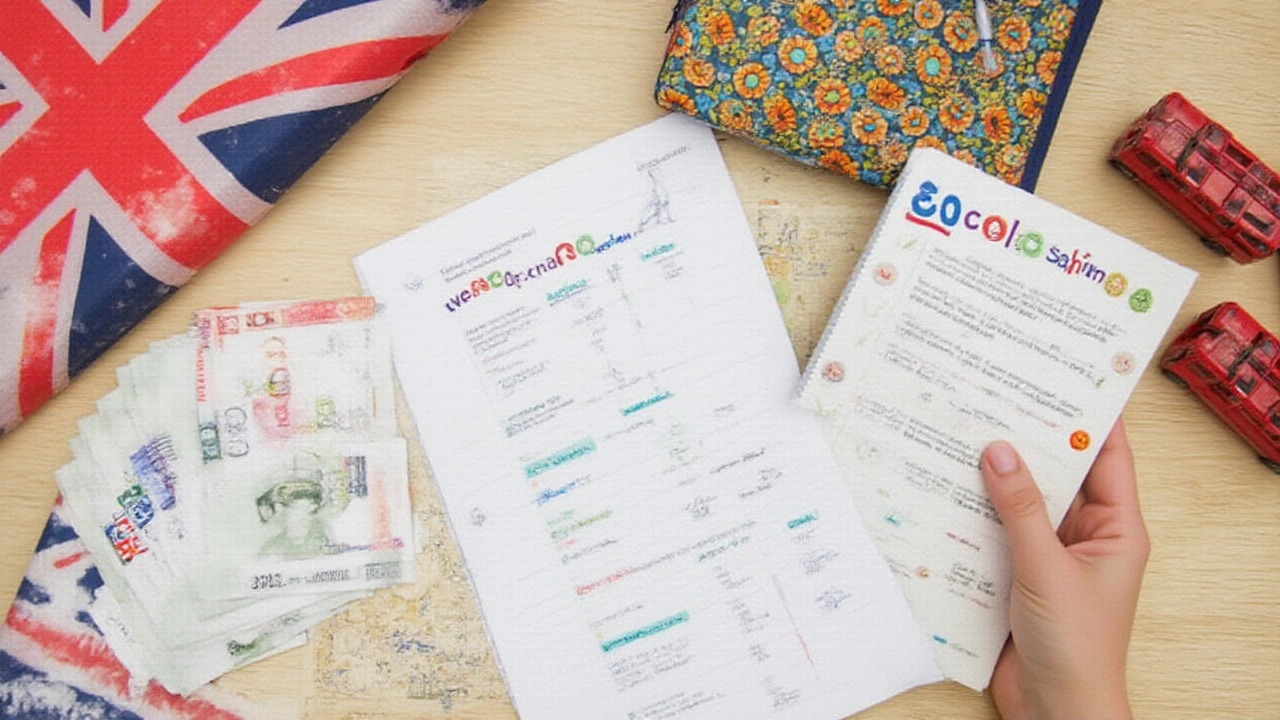-
15
- 0

Private Tutoring Explained: Benefits, Costs, and How to Choose the Right Tutor
Picture this: a student struggling in maths, parents worried sick despite hours of revision, and test scores refusing to budge. Now, imagine a patient guide, sitting across the kitchen table, using pizza slices to explain fractions—and suddenly, it just clicks. That’s the secret sauce behind private tutoring. It isn’t just an alternative for those falling behind or shooting for the stars, but a tailored experience where the class narrows down to one. So, what makes private tutoring so special, and why are millions of families worldwide investing time and money into it?
What Exactly Is Private Tutoring?
At its core, private tutoring is simple: personalized teaching. Unlike crowded classrooms where teachers juggle dozens of students, a private tutor focuses on just one person or a small group. Usually, it’s a weekly (sometimes daily) hour-long session, one-to-one, at home, online, or in a library. You pick the subject, the pace, even the method—whether that’s flashcards, stories, or practice tests. The tutor’s job? To unravel confusion, fill knowledge gaps, and nurture strengths that school lessons might miss. It isn’t about spoon-feeding answers, it’s about learning how to solve problems independently, ideally becoming your own best teacher in the process.
Private tutoring exploded during the COVID-19 lockdowns. According to the UK’s Sutton Trust, the amount of children receiving tutoring rose from 18% in 2019 to 27% in 2021. But the concept isn’t new—centuries ago, wealthy families would hire scholars to educate their children at home. Today, it’s not just for the privileged. Thanks to technology, private tutors now video-call into living rooms from different countries, and you can find help for everything from chemistry to chess. What’s changed is the flexibility and availability; what stays the same is the promise of undivided attention.
Private tutoring works best when it’s consistent and goal oriented. Some families hire tutors for a specific exam—think GCSEs, SATs, or entrance tests. Others use ongoing sessions to keep up with schoolwork, or tackle things like languages, music, or coding. It’s rarely about cramming. Great tutors build confidence, help develop good study habits, and encourage students to ask questions they might not voice in a busy class. Private tutoring adapts to your style: if you learn by doing, tutors set up hands-on activities; if you need to talk it through, they’re all ears. That’s the magic—personalizing the learning journey every single time.
Why Do People Choose Private Tutoring?
Why do parents fork out extra—sometimes hundreds a month—when schooling is free or already paid for? It isn’t just about getting better grades (though that often happens). For starters, a private tutor can spot misunderstandings that blend into the background in a big class. Some children don’t speak up when they’re stuck, worried about looking “slow.” Private tutors dig into the details, ask more questions, and fix things early.
There’s also the flexibility—sessions can fit around family life, be rescheduled, or ramped up before important tests. For working parents, a tutor’s extra support means less tension at home; no more battles over homework at the kitchen table. In fact, the Education Endowment Foundation ran a series of projects in 2020 showing that frequent one-to-one tuition led to about five months’ progress for struggling students in a single academic year.
Private tutoring often means faster learning. Why? Tutors can dwell on sticking points without needing to move the whole “class” along. Complex topics—calculus, grammar, interpreting poetry—get broken down step by step, without the pressure of peers. Some gifted kids use tutoring as a springboard, stretching them beyond the classroom’s limits. Others, like kids with dyslexia or ADHD, use tutors who specialize in learning differences. And for teens, building a trusting relationship with an inspiring tutor can spark a love for a subject they once dreaded.
One more perk: tutors can help students learn how to learn. They model organization, break down a big project into small steps, and teach revision tricks you won’t always get from busy teachers. That confidence boost? It sticks around long after the grades improve.

Different Types of Private Tutoring
Not all tutoring looks the same. You’ll hear about in-person tutors, coming to your house or meeting in a cafe. Others log in from Canada or India, coaching via Zoom or Skype. Then there’s “group tutoring,” where small groups (usually 3-6 students) learn together. Some students thrive in pairs or groups—they ask each other questions or solve problems as a team. This setup is often cheaper per person, and can mimic classroom energy for kids who like a “shared struggle.”
Online tutoring has taken off recently. Sites like Tutorful, Wyzant, and MyTutor claim tens of thousands of active tutors across every subject imaginable. Unlike the old “classified ad” days, parents just filter by subject, price, rating, and availability. Online tutors screen-share, use virtual whiteboards, and even record sessions for students to replay later. For families in rural areas, or those juggling busy after-school schedules, this kind of flexibility is a total gamechanger.
Then there’s “subject specialists.” Some tutors dedicate themselves to tricky exams like physics A-Level, university entrance tests, or even musical theory. Others focus on key stages—primary, secondary, or adult learners. Notably, there are tutors for those with specific needs: English as an Additional Language (EAL) students, kids with dyscalculia, or children needing confidence boosts in reading. In 2023, a survey by The Tutor Association found that roughly 34% of their members offered some form of specialist tutoring, which means there’s almost always a perfect-fit coach for every learner.
It’s not all school-focused, either. Private tutors help children prep for speech competitions, coding bootcamps, music exams, sports, or theatre auditions. Some families use tutors just for summer “catch up,” or as enrichment for curious minds. The explosion of online platforms now means you could study Japanese with a Tokyo-based tutor, no matter where you are. The shape of tutoring, in short, bends around you.
How Much Does Private Tutoring Cost?
Money is always a big question. Private tutoring can cost anywhere from £15 to over £100 an hour in the UK, or $20 to $200 in the US, depending on subject, location, and the tutor’s experience. The price drops for group sessions or online-only tutors working from places with lower living costs. On average, most families in England spend about £35 an hour, according to a 2024 BBC education report. If you hire a recent graduate, rates may dip below £30; if you want a retired school headmaster or an Oxbridge expert, expect to pay at the higher end.
Certain subjects cost more—maths, sciences, and university entry all tend to have higher prices because tutors often have specialized knowledge or teaching certifications. For ongoing learning, some families negotiate packages: pay upfront for 10 sessions and get a small discount, or join a tutoring center where costs are shared. During exam season, be ready to pay more, as demand spikes every spring and autumn.
If you’re on a budget, don’t despair. Free and low-cost tutoring is out there. Government programs in the UK (like the National Tutoring Programme, launched in 2020) and nonprofit schemes can help families with limited means. Peer tutoring—older students helping younger ones—can be just as effective for certain subjects, and some universities run Saturday enrichment clubs in the community. Online apps, such as Khan Academy or BBC Bitesize, offer structured practice for free, which works best when combined with occasional live support.
Remember, though: pricey doesn’t always mean better. Look for someone who explains things clearly, adapts to your pace, and actually gets to know the student as a person, not just a grade.

How to Find and Choose the Right Private Tutor
Getting a great tutor is less about the fanciest degrees and more about finding a good fit. Start with recommendations—ask friends, relatives, or teachers. Local Facebook groups and school notice boards often have adverts. The big tutoring platforms let you browse hundreds of profiles, read parent reviews, and message tutors directly to suss out their vibe before booking.
When chatting with potential tutors, ask about their experience, teaching style, and success stories. A strong tutor doesn’t just recite textbook facts—they listen carefully, adapt, and put students at ease. Many offer “trial” sessions: a short first meeting to see if you click, often at a reduced rate or even free. Pay attention to how the tutor builds rapport and motivates the student, not just the test scores of previous clients.
Check for relevant qualifications, such as a teaching certificate or a degree in the subject if it’s advanced. Tutors working with children in person (especially in the UK) should have a recent DBS (criminal record check) or its equivalent for safety. If you’re hiring for specific needs (like dyslexia), ask about special training. Good tutors don’t promise miracles, but they do agree on clear goals, share a plan, and give honest feedback about progress.
Personality and patience count—does your child feel comfortable, even when they get stuck? The best tutors celebrate small wins, tweak their methods when something isn’t working, and gently encourage risk-taking. Chemistry is as important as credentials. And finally, review results every month: if test scores or confidence aren’t improving, it’s completely normal to try someone else.
Private tutoring isn’t magic, but it can spark breakthroughs where school alone sometimes can’t reach. With the right guide on their side, even the trickiest subject might just become a favorite story to tell later on.
Write a comment
Tags Weight
- education
- study tips
- adult education
- exam preparation
- online courses
- adult learning
- lifelong learning
- distance learning
- GCSE revision
- online education
- private tutoring
- special needs education
- scholarships
- remote learning
- scholarship tips
- financial aid
- international students
- effective learning
- e-learning
- education funding

Written by Elara Winslow
View all posts by: Elara Winslow